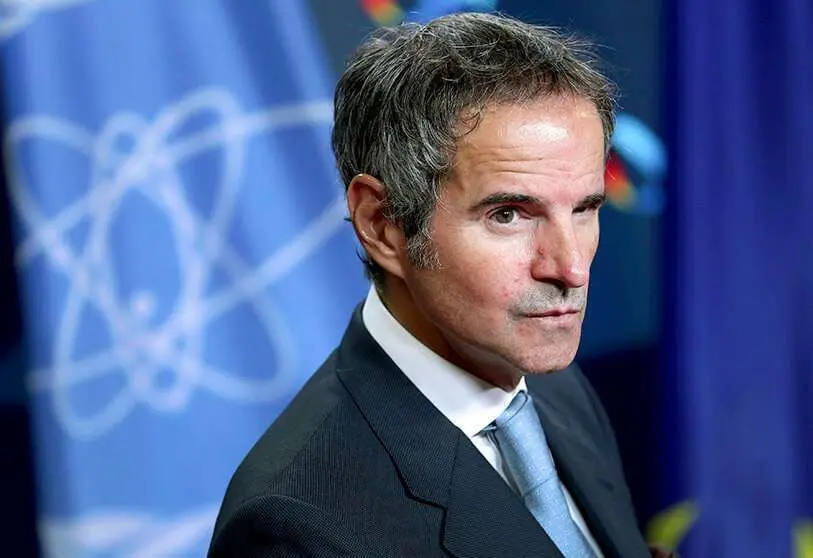Iran continues to produce enriched uranium well above agreed levels

According to the latest report of the International Atomic Energy Agency (IAEA), Iran has reserves of enriched uranium of 2,449 kg, well above the maximum limit of 300 kg established in the nuclear pact with the major powers.
The International Atomic Energy Agency (IAEA) has asked Iran for clarification, as it considers the information provided on a suspicious site to be "not technically credible", according to a report consulted on Wednesday 11 November by the AFP in Vienna.

Moreover, Tehran continues to accumulate uranium after the United States withdrew from the agreement signed in the Austrian capital in 2015: the amount of low-enriched uranium now exceeds the limit authorised by the IAEA by 12 times.
Most of the Islamic Republic's reserves, 2,408 kg, are in the form of UF6 gas. Iran has added a further 337.5 kilos to its reserves of enriched uranium in the last quarter.
The access of the inspectors to two undeclared sites to investigate this discovery has been a source of dispute for months between the IAEA and Tehran, and only at the end of August did Iran agree to allow international experts to take samples there.
The results of the analysis are not yet available, but a third site raises questions for the UN agency, which regrets the "time" lost and asks for "full and prompt explanations from Iran regarding the presence of anthropogenic uranium particles (resulting from human activities) at an undeclared site".

Although Tehran has provided additional data on 5 and 9 November to explain these particles, the IAEA still does not consider its explanations adequate.
The IAEA demands a "prompt and complete" explanation in order to avoid any "possible concern" over the veracity of Iran's declarations on its nuclear activities.
Its location has never been officially specified, but diplomatic sources told the AFP that it was a warehouse in the district of Turquzabad of the capital, which has been denounced by the Israeli government. The Director General of the IAEA, Rafael Grossi, had already expressed his concern about it in March. "The fact that traces have been found is very important; it means that there is a possibility of nuclear activities and materials that are not under international control and whose origin and destination are unknown," he said at the time.
Iran began to produce higher-purity uranium last year, in violation of the nuclear agreement, in response to the US's withdrawal from the pact in 2018 and to put pressure on the European members of the agreement to guarantee it the expected economic benefits. In return, international sanctions against Iran were lifted, although the United States reinstated its punitive measures in 2018, including an oil embargo.

Iran is therefore continuing on its uranium production track in response to America's withdrawal from the agreement signed in Vienna in 2015 and the Trump administration's reinstatement of the sanctions that plunged the country into a deep recession. For Iranian President Hassan Rohani, the election of Joe Biden offers the United States the opportunity to "make up" for its "past mistakes".
"Our goal is to break the pressure of the sanctions that have been weighing on our people," he said. Whenever an opportunity arises, we will act responsibly," he insisted on Wednesday. Should the sanctions be lifted, and only under these conditions, Iran has promised to return to its commitments under the 2015 agreement (JCPOA), which was concluded after years of protracted negotiations.








